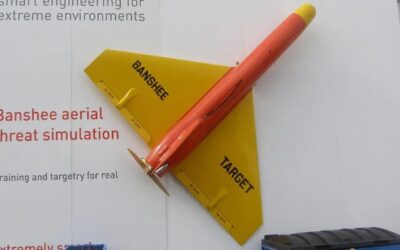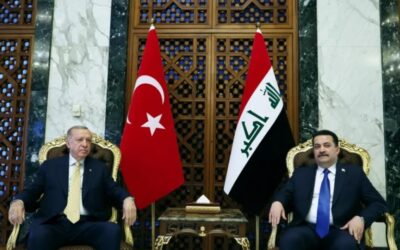The need for enhanced cooperation of the Western powers in the field of Defence was underlined by Mr. Nikolaos Papatsas, Senior Partner of…
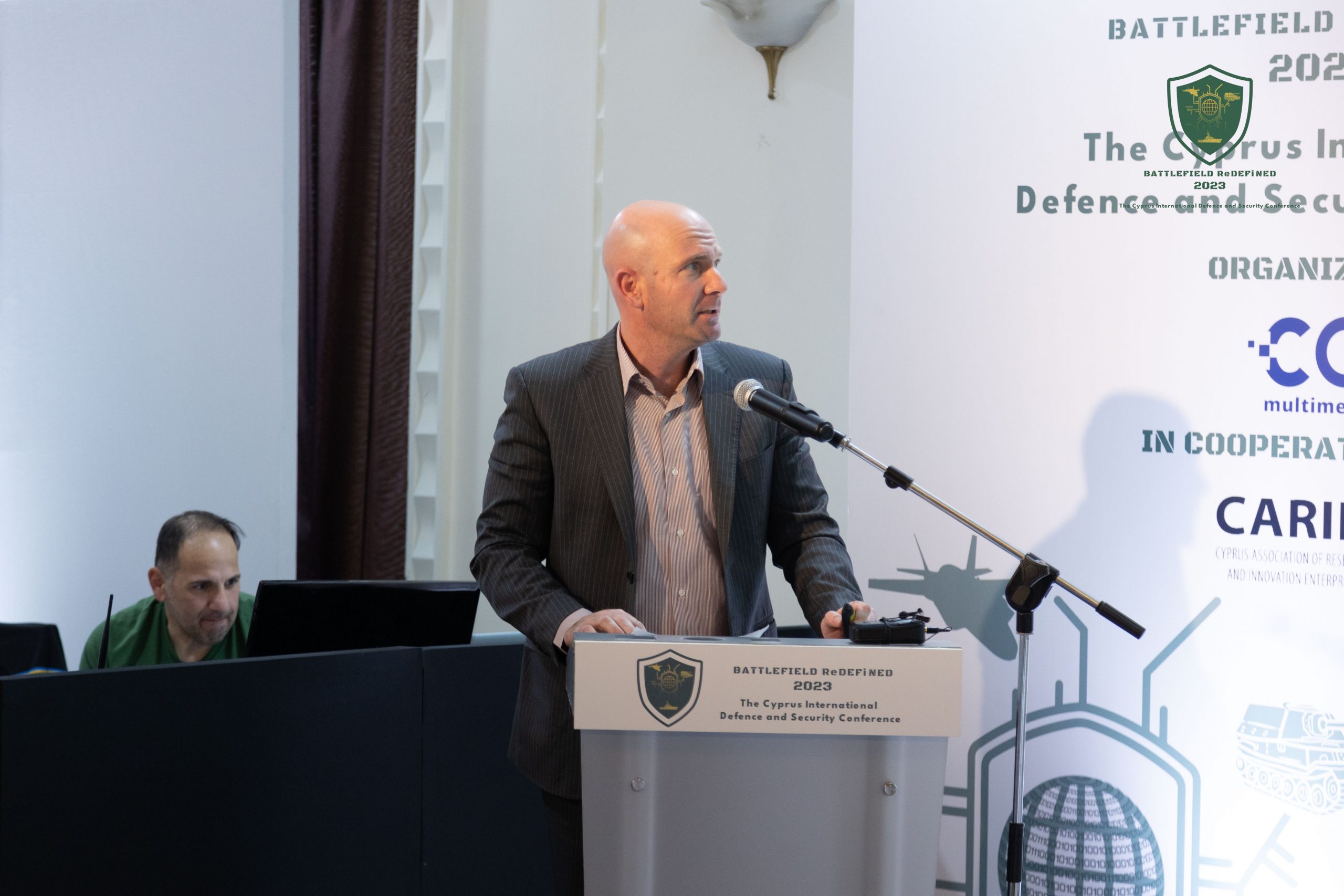
The Department of Crisis Management of the Ministry of Foreign Affairs participated in the second part of the “Armed and Security Forces Synergies” session of the BATTLEFIELD ReDEFiNED 2023 International Conference held in Cyprus.
The officer of the department, Captain Charalambos Attipas, presented the structure and role of the Center in his presentation entitled “Crisis Unfold – Structure and Operation of the National Crisis Management Center”.
Through this presentation, Mr. Attipas sought to present the state model of Crisis Management, which looks forward to the early prediction of potential crises as well as the ways to tackle the same.
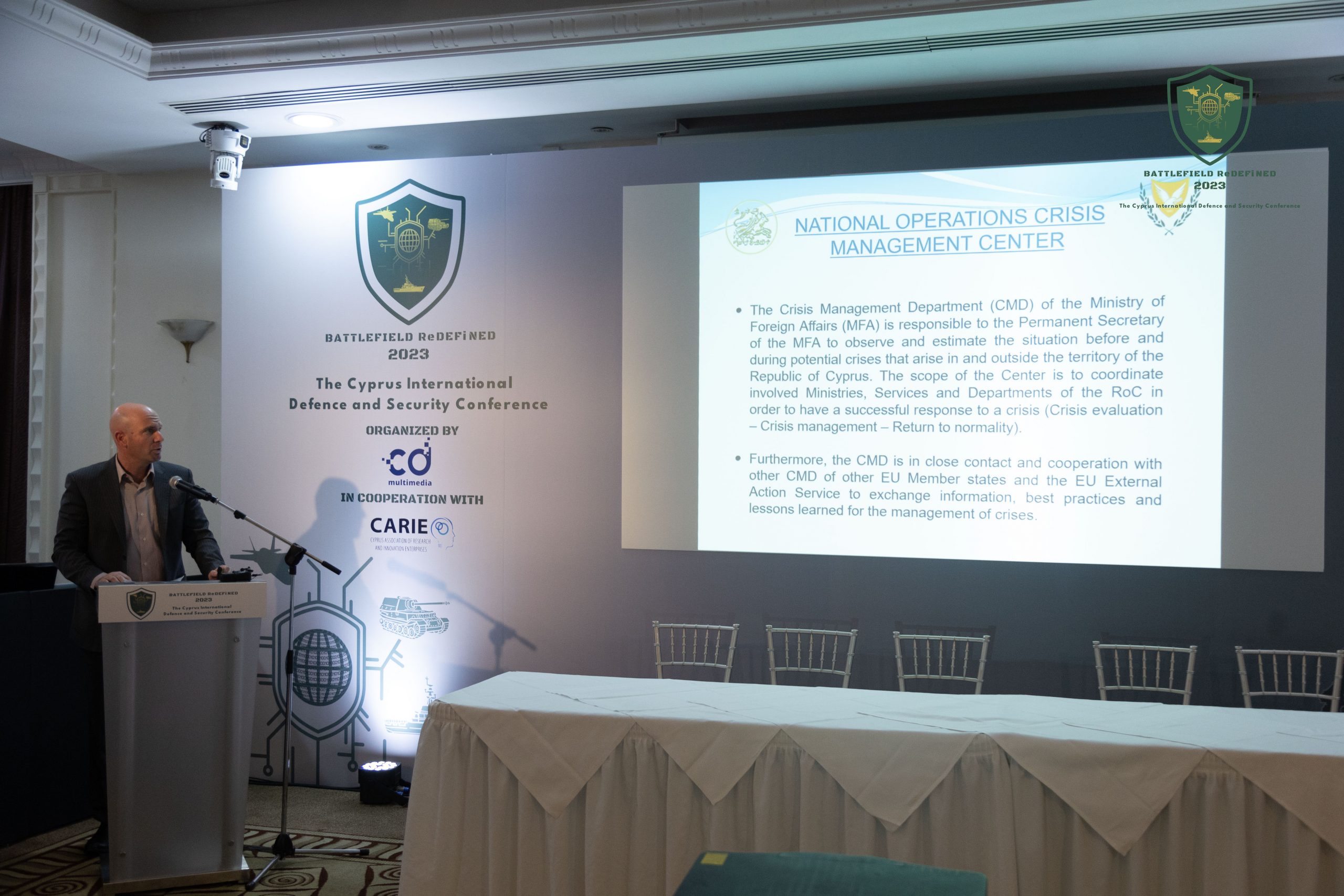
Initially, Mr. Attipas referred to the operation of the Crisis Management Department, which is responsible – under the General Secretariat of the Ministry of Foreign Affairs – for monitoring and assessing the situation prior to and during potential crises arising inside and outside the territory of the Republic of Cyprus, while the scope of the Department is mainly the coordination of the involved Ministries and Services of the Republic of Cyprus for the successful handling of a crisis.
In addition, the said Department is in close contact and cooperation with other Departments of other EU Member-States as well as with the EU External Action Service for the exchange of information, best practices, and lessons learned on crisis management.
Secondly, the speaker focused on the structure of the National Operations Center – Crisis Management, operated by the personnel of the Crisis Management Department, which is in turn hosted by the Ministry of Foreign Affairs.
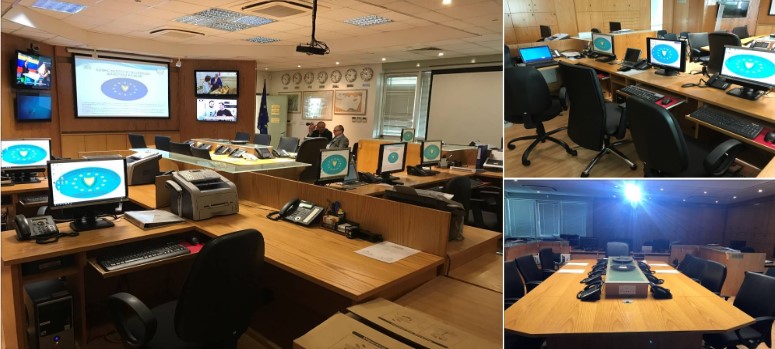
At the top of the pyramid (gold level), structured on the basis of a vertical hierarchy, is the President of the Republic along with the Minister of Foreign Affairs, while the General Secretariat of the Ministry of Foreign Affairs follows (silver level). This is followed by (bronze level) the Director of Schengen, Consular Affairs and Crisis Management at the Ministry of Foreign Affairs together with the Head of the Crisis Management Department. At the same level, there is the cooperation of the National Operations – Crisis Management Center with the representatives of all the services involved.
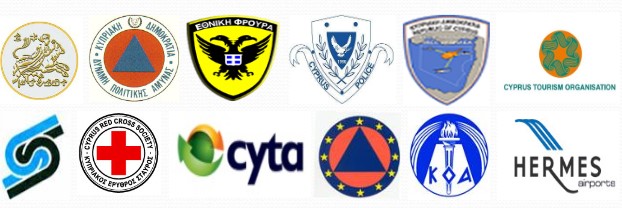
Also read: Memorandum of Cooperation signed by JRCC – UDT Reserve Association – Ayia Napa Marina
Then, Mr. Attipas gave a definition of a crisis:
- Armed conflicts
- Counter-Terrorism and Cyberattacks
- Evacuation from a third country and repatriation of Cypriot and foreign citizens
- Natural disasters – Effects of climate change (earthquakes, tsunamis, floods, droughts)
- Biological hazards – Pandemics
- Accidental human-caused events such as fires, explosions, collapses of buildings or structures, marine pollution, etc.
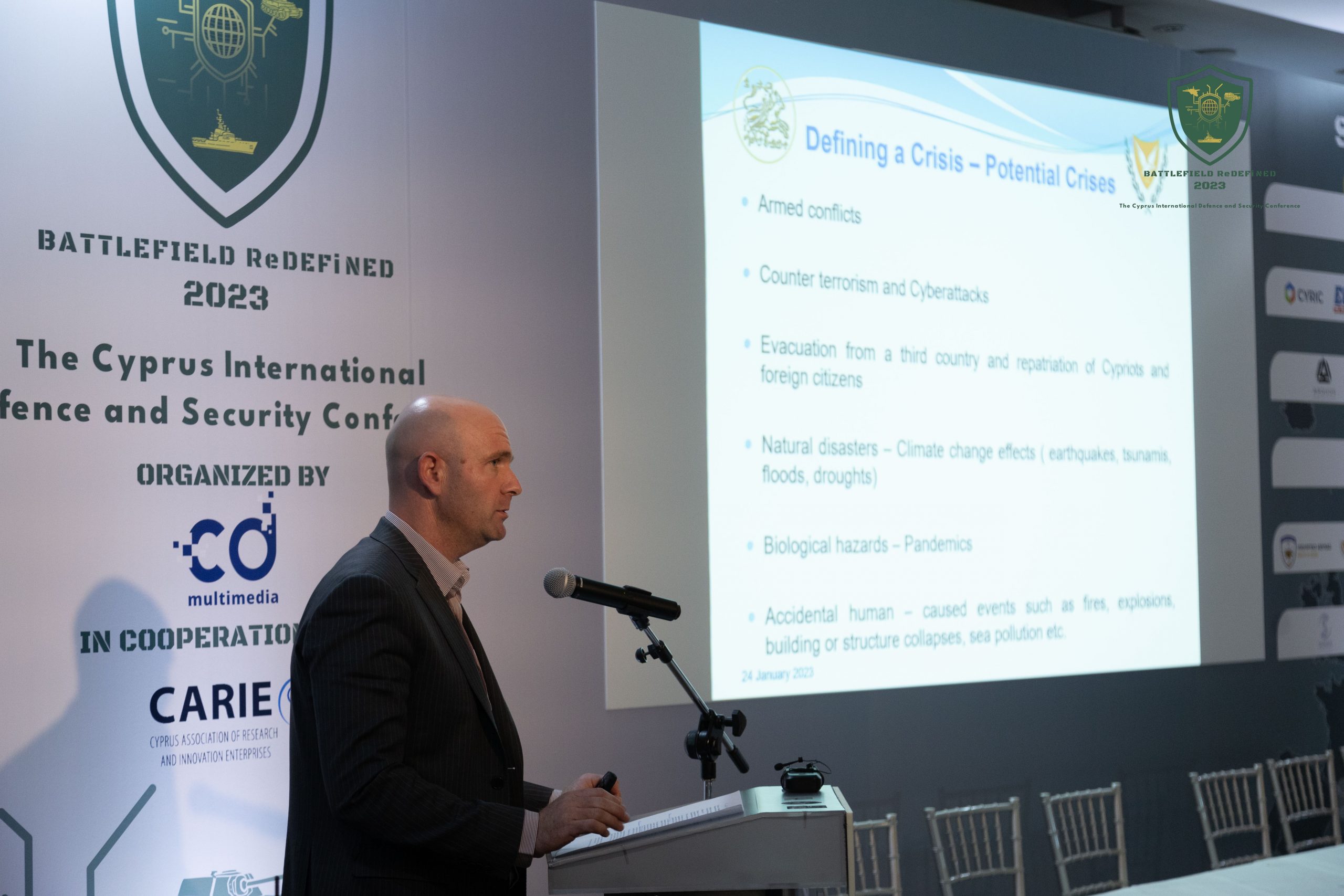
At this point, the speaker placed emphasis on individual characteristics of a crisis cycle saying that:
- A crisis can last from a few hours to several days or longer and requires quick decision-making in order to mitigate any damage to government departments and the public;
- It is very important to have a crisis management plan in place to manage potential crisis situations;
- Once completed, the crisis management plan must remain a “living document”. This means it should be distributed to government Ministries, implementing training and testing and updating the Crisis Management Department on a regular basis;
- Training sessions should be held so that everyone involved understands their role. The tests range from tabletop exercises to full simulations;
- After a test or following a crisis, it is important to review and discuss the results and make the necessary changes to the plan.
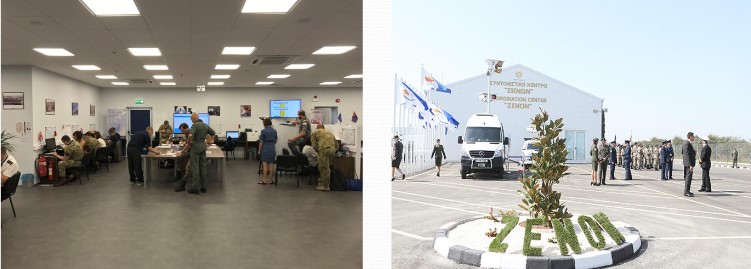
In particular, Mr. Attipas focused on the importance of the “ZENON” Master Plan. In 2013, the Republic of Cyprus prepared a general framework for dealing with various risks and situations, which are characterized as “crisis”, under the name Basic National Plan “Zenon”. The latter essentially constitutes the integrated action plan for Ministries and state services, in incidents of all kinds of disasters, except for political-military crises and war conflicts, for which the prescribed procedures are defined in the crisis management system of the National Guard General Staff (GEEF).
The said Master Plan essentially functions as the main pillar, which includes another twenty-two Special National Plans, which have been prepared by various Ministries, depending on the responsibilities and involvement of each one. The speaker indicatively mentioned the national plan “ESTIA”, while he pointed out the importance of training, highlighting the importance of exercises such as the annual multinational search-rescue exercise (Civil/Military Cooperation Exercise – CIMIC) “ARGONAUT”.
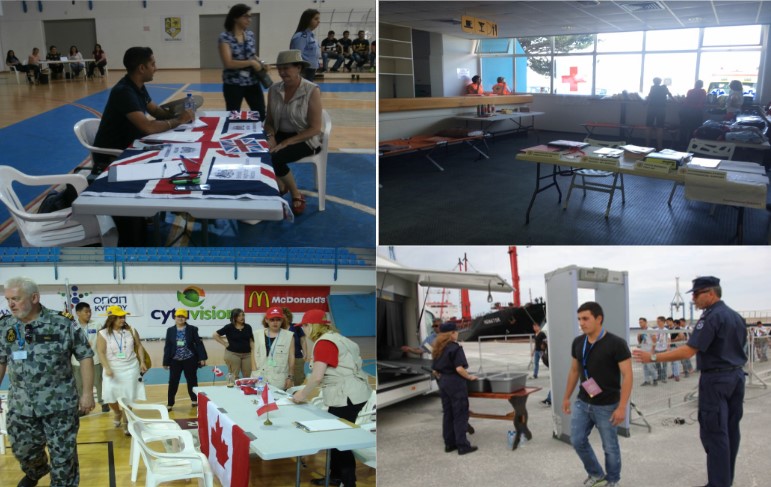
These plans have been mostly implemented in recent years, since we are currently living in the “multi-crisis” era, which greatly affects the Republic of Cyprus due to its strategic location.
Also read: National Guard General Staff | Completion of the exercise “SCORPION SWORD – 2022” – Photos
READ MORE
Delphi Economic Forum IX | Christian Chatziminas on re-industrialization and high technology in entrepreneurship
Mr. Christian Chatziminas, Founder & CEO of THEON GROUP and President of the Hellenic Entrepreneurs Association, participated in…
Heraklion | Aerial target washes up on beach – Taken for drone from Iran
Yesterday Sunday, intense confusion was caused on a beach in Heraklion, Crete, when an aerial target used in shooting ranges to test…
SIPRI | New record in global military spending
In 2023, global military spending set a new record for the ninth consecutive year, according to research by SIPRI, the Stockholm-based…
Iraq – Turkey | Sign more than 20 agreements
Turkish President, Recep Tayyip Erdogan, met with his Iraqi counterpart, Abdul Latif Rashid, in Baghdad on the occasion of his official…
Lambda (λ) Automata | Autonomous surveillance solutions at “Investing in Deep Tech: Dual-Use Technologies” conference
The recent presentation of the start-up company Lambda Automata at the “Investing in Deep Tech: Dual-Use Technologies” conference…
VELOS ROTORS | Velos V3 UAS introduced as ideal example of dual-use systems
The “Investing in Deep Tech: Dual-Use Technologies” conference held at the Hellenic Armed Forces Officers’ Club in…
OCCAR | Additional Night Vision Goggles
The Director of the Organisation for Joint Armament Cooperation (OCCAR), Mr. Joachim Sucker, has signed a third amendment to…
Iraq | Εxplosion at military base south of Baghdad
A major explosion at a command post of the Iraqi Army took place today Saturday about 50 kilometers south of Baghdad…
















